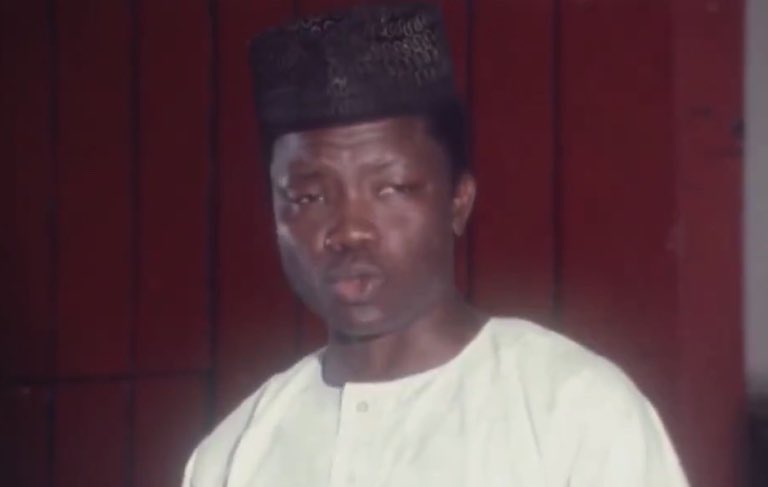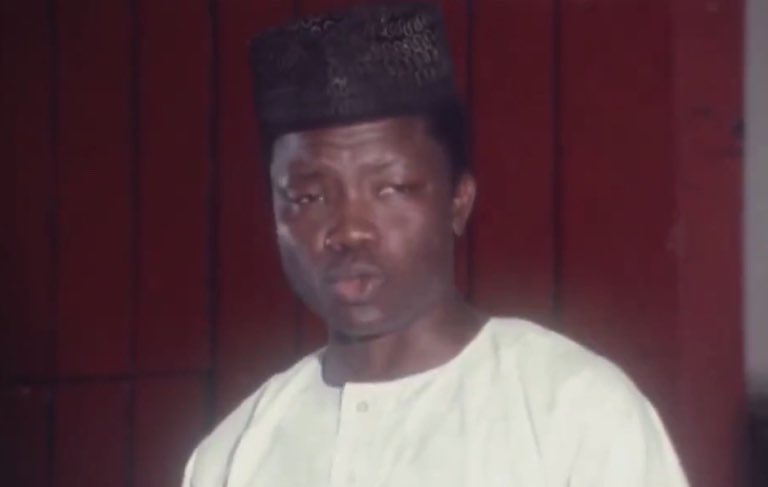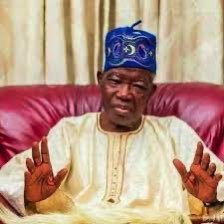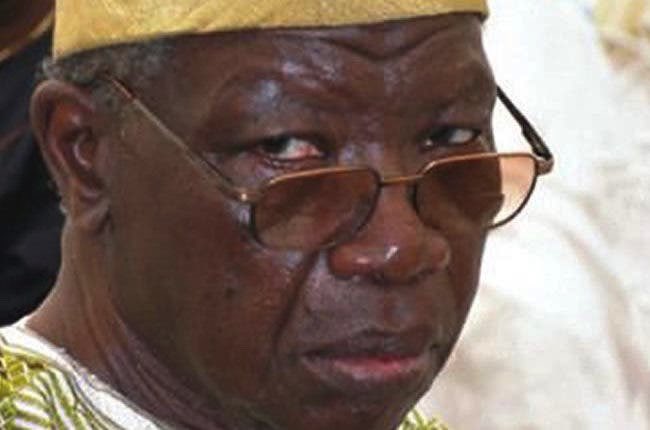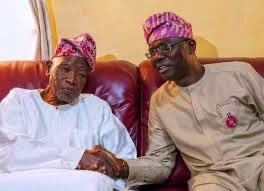Alhaji Lateef Kayode Jakande, 23 July 1929 – 11 February 2021, the first civilian governor of Lagos state, died earlier today, 11th February 2021, at the age of 92.
Jakande, was a Nigerian politician of the Awolowo school & a career journalist. He was born in Epetedo, Lagos, though his parents were originally from Omu Aran. He went to primary school in Lagos & to King’s college for 1 year, before moving to Ilesa Grammar School.
While at Ilesa he got involved with school journalism becoming the editor of the school literary periodical. After leaving Ilesa, he got a job with the defunct Daily Service.
In 1953, he moved to the newly founded Nigerian Tribune & within 3 years had become its editor in chief.
In 1953, he moved to the newly founded Nigerian Tribune & within 3 years had become its editor in chief.
LK as he was fondly called, retired from the Tribune after 22 years in 1975.
He then started a book publishing & printing company, John West Publications. John West was a pseudonym he had used to write his columns as a journalist! He also published a newspaper, The Lagos News.
He then started a book publishing & printing company, John West Publications. John West was a pseudonym he had used to write his columns as a journalist! He also published a newspaper, The Lagos News.
As a journalist he was very active in the programmes of the International Press Institute. He was the main person behind the establishment of the Nigerian Institute of Journalism. In 1971. He was also the first President of the Newspaper Proprietors Association of Nigeria (NPAN).
His long careers at the Tribune gave him the opportunity of developing a close relationship with Chief Awolowo. In fact, he was one of the accused in Awolowo’s treason trial in 1963, alongside 14 others. He was subsequently jailed for alleged treason.
It was while in prison that he wrote a treatise, published as a pamphlet, titled The Case for A Lagos State, in 1966. He was later pardoned and released from prison later that year. Lagos was created as a a state the following year under Nigeria’s then 12 state structure.
With the ban on political activities lifted, he became involved with the Committee of Friends that was to later morph into the Unity Party of Nigeria. He was eventually elected as the part’s flag bearer for Lagos State in 1979 and sworn in on October 1.
His co-contestants were Chief Adeniran Ogunsanya of NPP & Sultan Adeniji Adele of NPN
In his inaugural address:, he said “I know that Lagos State is said to be the most developed part of the Federation. But I also know that below the majestic flyovers, the mystifying ring roads, and the spiralling skyscrapers there is abject poverty in this State.
And I know that there are in Lagos State some of the worst living conditions that can be found in any part of the Federation. It will surprise many, in other states to be told that Lagos State is as much in need of development as any other State. Perhaps our need is greater.
Because of the pressure of population, which is the highest in the country, the demand for services is extremely severe. Besides, Lagos State is Nigeria’s shop window.”
No wonder then that his polices focused on the low-income bracket & the lower rungs of the middle class. His coming was like a rescue of Lagos from what seemed like stagnation, especially in most of the outskirts of the city.
He initiated sweeping reforms in several sectors. But his greatest legacies were perhaps in education and housing.
He constructed over 30,000 housing units in estates scattered all over Lagos.
He constructed over 30,000 housing units in estates scattered all over Lagos.
At the time he took over, Lagos schools were so over crowded, that schools had to run two shifts, morning and afternoon schools. Within a few months of his assuming office, he had built enough makeshift class rooms to be able to cancel the shift system.
He then started building new primary and secondary schools in various neighbourhoods. This was in addition to the fact that under his party’s manifesto, primary and secondary education was free for all. It was also during his time that the Lagos State University was founded.
In Transport, he initiated the Lagos Metroline project to ease the traffic problems and solve some of the problems of commuting in the state. The contract was awarded and construction had already started with a specific timeline towards completion.
The project was unfortunately aborted when the military took over power in December 1983 barely 2 months after he was inaugurated for a 2nd term.
As governor he was a model of modesty & probity. He lived in the same house as he had always lived in Ilupeju throughout his 4 years.
As governor he was a model of modesty & probity. He lived in the same house as he had always lived in Ilupeju throughout his 4 years.
He also drove himself to work daily in his old Toyota Crown Sedan.
Jakande wrote a number of books. These include The trial of Obafemi Awolowo, The Problems and Prospects of Free Education, and The Role of the Mass Media in a Developing Country.
Jakande wrote a number of books. These include The trial of Obafemi Awolowo, The Problems and Prospects of Free Education, and The Role of the Mass Media in a Developing Country.
He was happily married to his lifelong companion, Alhaja Abimbola Sikirat Jakande. They have successful children in different walks of life.

 Read on Twitter
Read on Twitter


